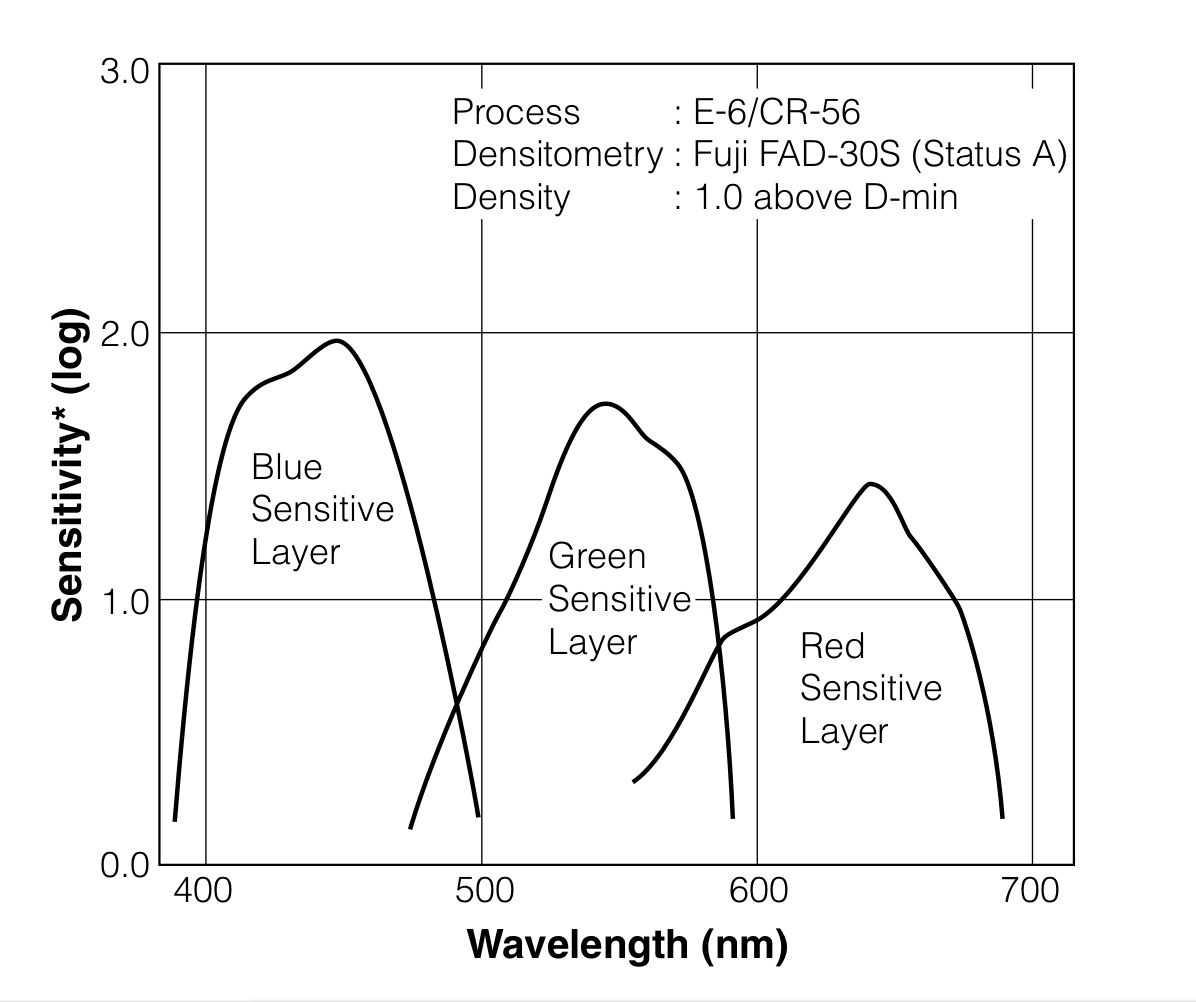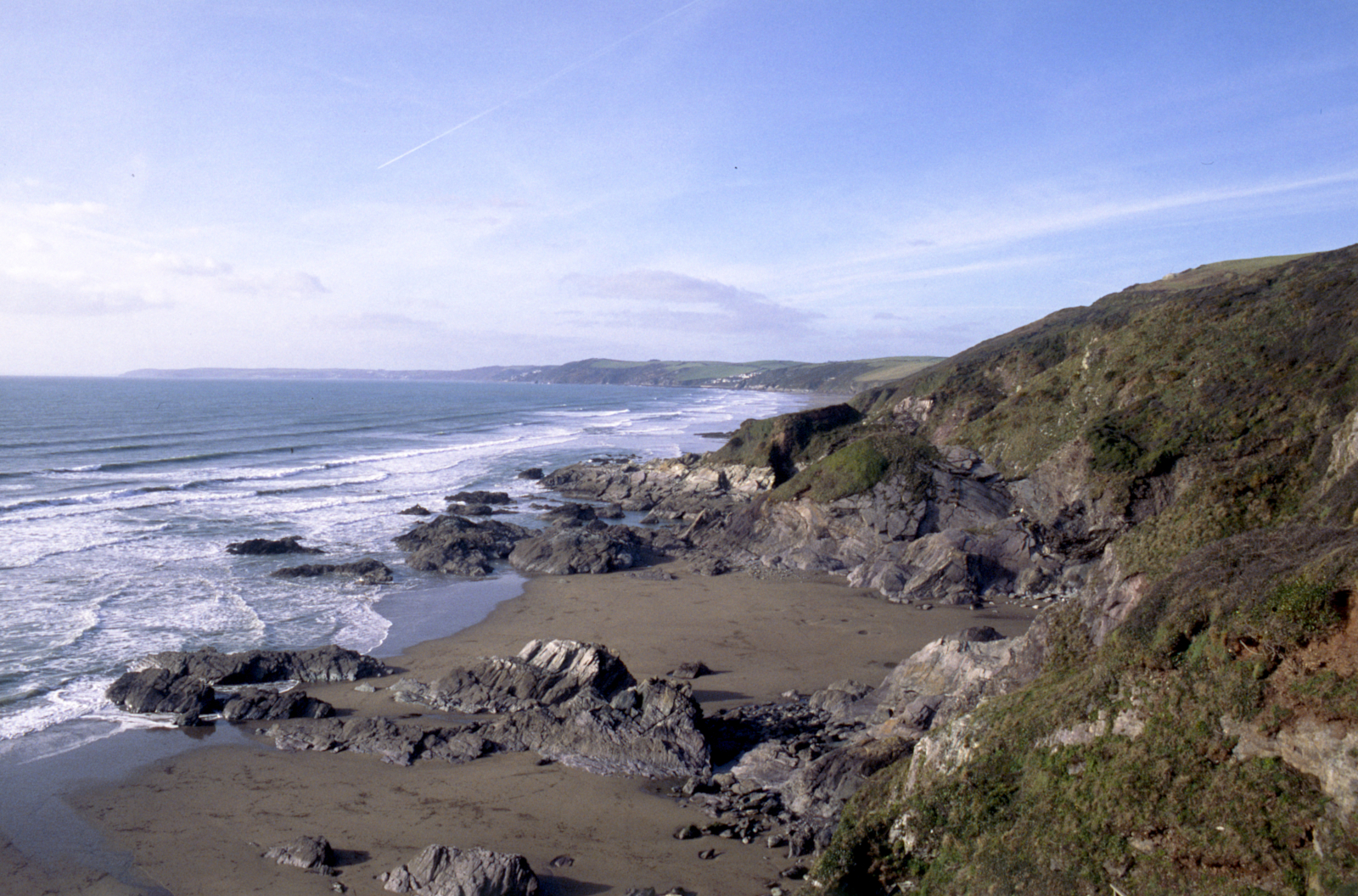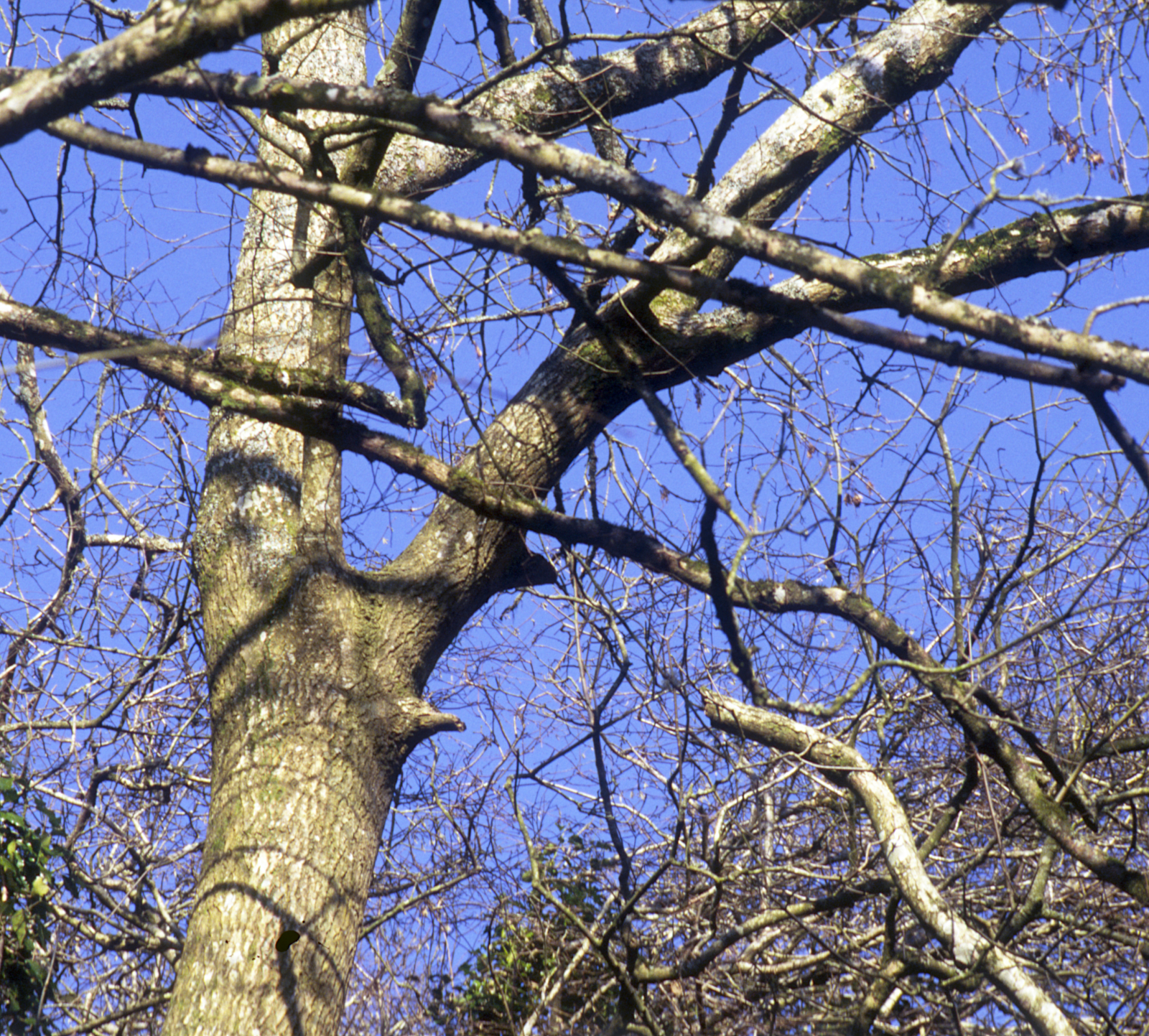
Leslie Wyatt
Photography
There are not many products that can be called iconic but in the field of photography
I think the Fujichrome Provia 400X emulsion has achieved that status. It was one of
the few fast slide films ever manufactured. It is less saturated than Velvia and for
me just has the edge on Ektachrome for natural colour rendition. Properly exposed
( and that is not easy ) the colours are just sumptuous. If you have never held a
medium format Provia 400X slide in your hand you have missed out on one of the joys
of life. Sadly, production came to an end in 2013 but many photographers appear to
have set dwindling stocks aside.
I last used a 35mm roll of Provia 400X during
a holiday in Palma, Majorca in 2013, the year of its demise ( See portfolio ). Since
then I have tried several types of colour print film and of course Ektachrome E100
and Fujichrome Provia 100F slide films. I have also taken a lot of black and white
photographs mainly using Ilford HP5, FP4 and the Delta range plus Berger Pancro and
Kodak Tri-X. But I could never quite get the memory of Fujichrome Provia 400X out of
my head especially since its 400 ISO speed made it more versatile than Provia 100F.
Loitering around eBay a year ago I realised that Provia 400X had been stockpiled by
some canny photographers. Yes, the prices were quite steep but they were only going
to get more rarified. Would film stored since 2009 still be of any use even if stored
in a refrigerator? I read many web reviews on using expired film and initally decided
that I ought to get over Provia 400X and move on! But eventually I decided to take the
plunge and see for myself if properly stored film could defy the ravages of time on what
is essentially an organic product. I bought a roll of 35mm film and 5 rolls of 120 film
which apparently had been refrigerated since 2009.
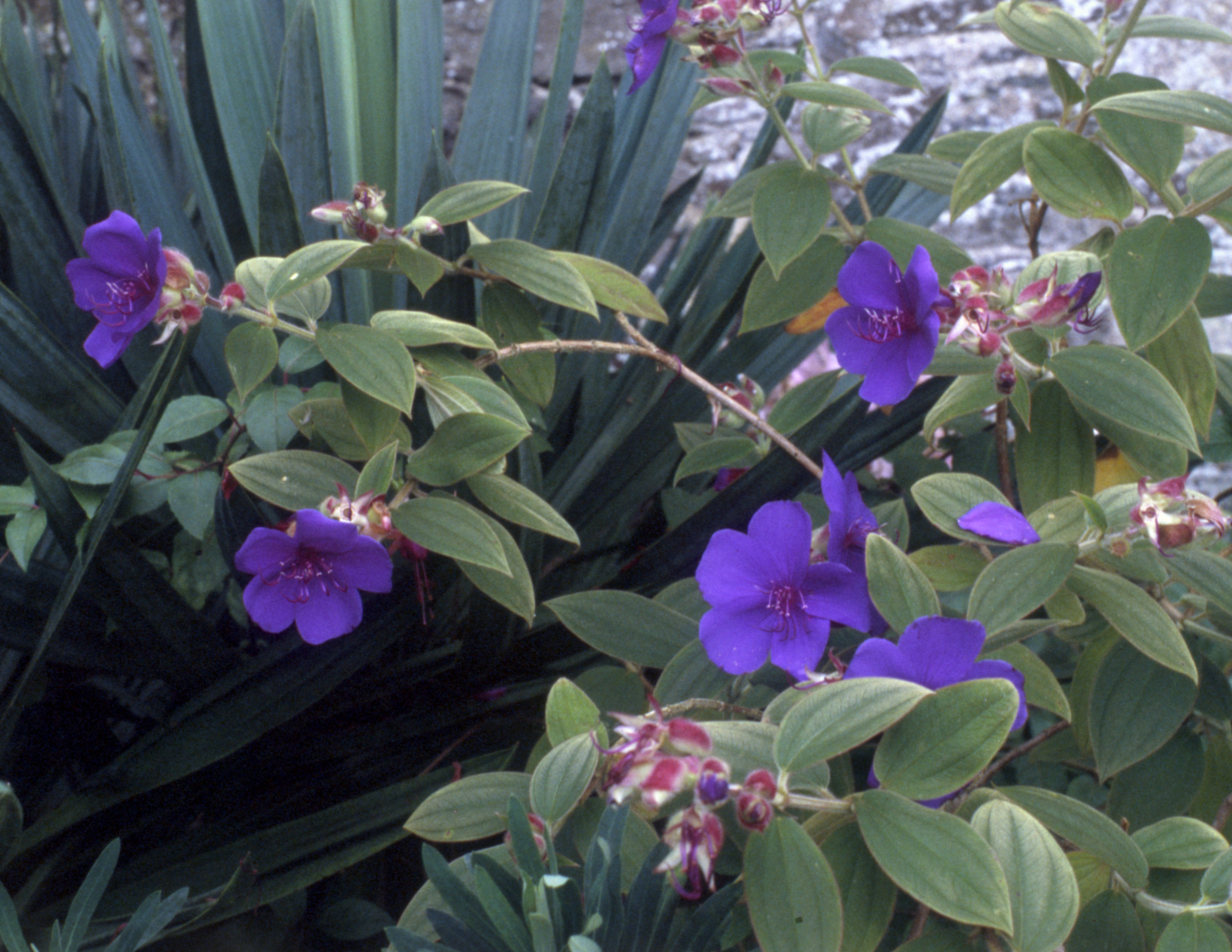
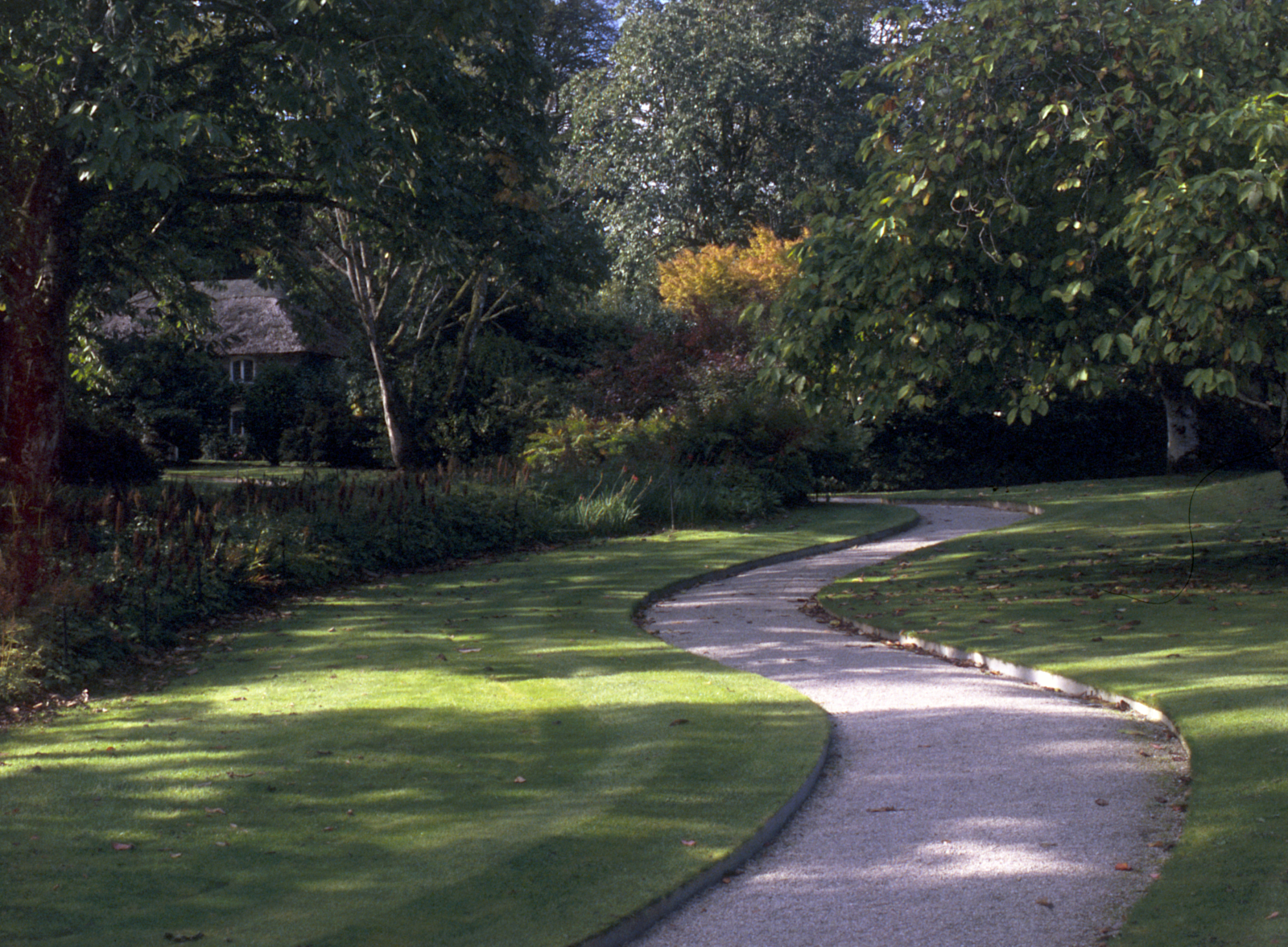
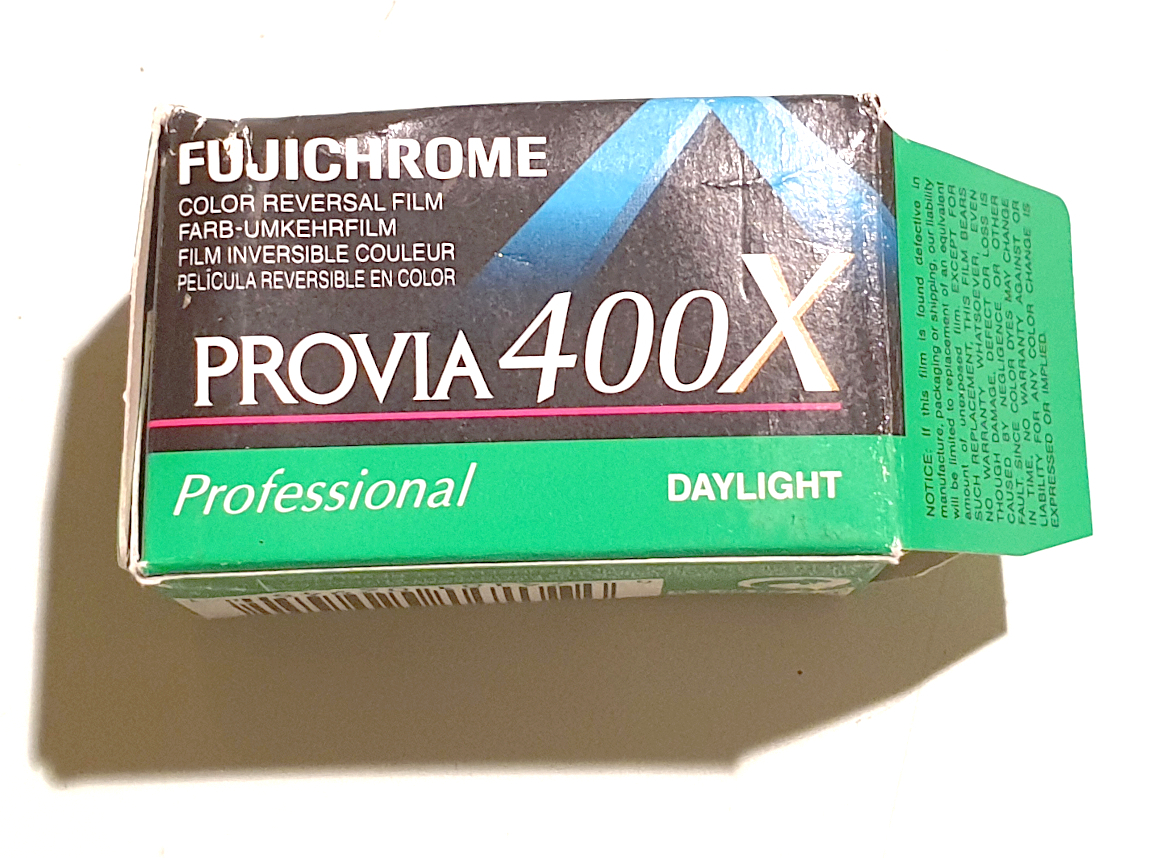
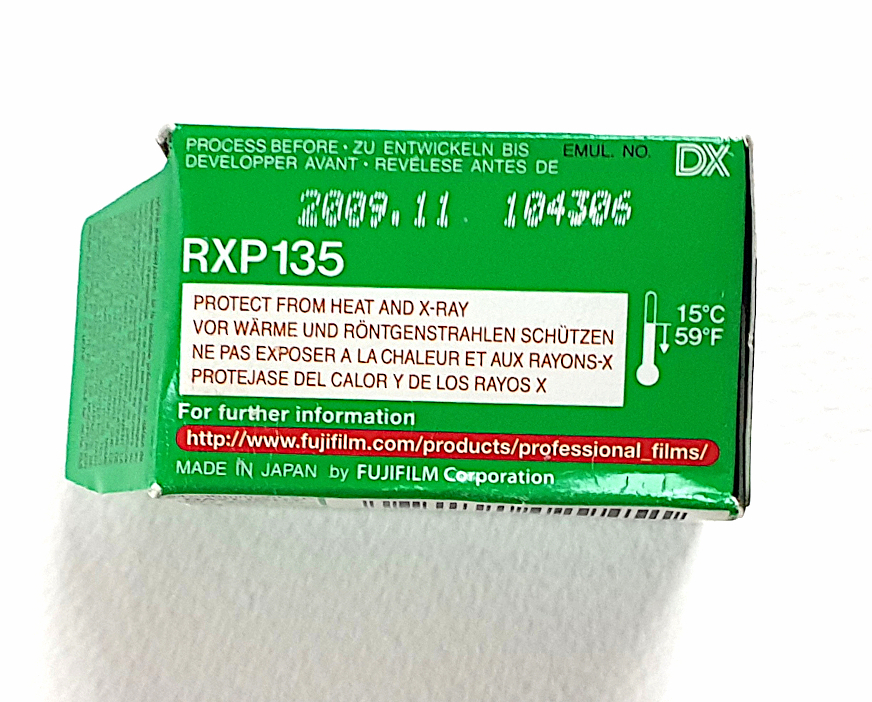
I first tried the 35mm film as essentially a testing process and I have to admit that my enthusiasm
for seeing the finished result rather compromised my ability to see a good photograph. But there were a
few and enough to show me that the film had suffered no ill effects from languishing in arctic conditions
since its expiry. The Fujichrome emulsions will often impart a magenta cast under certain daylight conditions
and if exposure is even slightly off. The Whitsand Bay image below is a case in point. This is probably related to the higher sensitivity
of the emulsion to blue and green light compared to red shown in the datasheet.
There is a plethora of advice on the web in how to deal with this and the easiest way
is to alter the colour balance in your chosen image processing software which is what
was done with the image below. But the one I like best is to try and correct it in
camera by using a warming filter ( 81A ) coupled with apertures smaller than f8.0.
This is precisely what is suggested on the Fujichrome Provia 400X Datasheet particularly
for cloudy weather landscapes. A UV filter is also recommended for seaside locations,
snow scenes and bright distant landscapes. An 81A filter will need a +1/3 stop correction
but the UV filter does not affect exposure. The datasheet also suggests that under normal
daylight conditions colour balancing filters are not required. This is clearly demonstrated
by the image of the Princess Flower above. This image was scanned from the slide with
nominal settings on the Epson VP750 scanner and apart from cropping and resizing, no other
corrections were made.
I now have the excitement of using the medium format films in
the knowledge that they too will reproduce well although nothing is guaranteed in film
photography. I have also just acquired another 5 rolls of medium format Provia 400X.
Watch this space!
